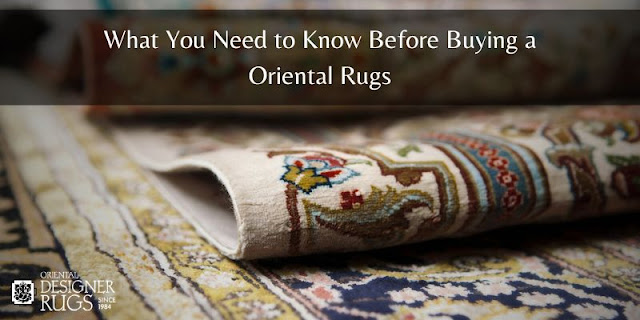What You Need to Know Before Buying a Oriental Rugs
Before buying an Oriental rugs, it's important to consider several factors to ensure you choose the right rug that suits your space, preferences, and budget. Oriental rugs are known for their intricate designs, rich colors, and cultural significance. Here's what you need to know before making a purchase:
Origin and Type: Oriental rugs come from various regions, each with its own distinct design motifs and weaving techniques. Research the different types of Oriental rugs, such as Persian, Turkish, Afghan, and more, to understand their unique characteristics and origins.
Materials: Oriental rugs are often made from natural fibers like wool, silk, and cotton. The type of material affects the rug's texture, durability, and price. Wool rugs are known for their durability, while silk rugs are more delicate and luxurious.
Design and Patterns: Oriental rugs are renowned for their intricate patterns and designs. Familiarize yourself with common motifs and symbols associated with different cultures and regions. Choose a design that resonates with your aesthetic preferences.
Color Palette: Oriental rugs are known for their rich and vibrant color palettes. Consider the colors in your space and how the rug's colors will complement or contrast with your existing decor.
Size and Shape: Measure the area where you intend to place the rug to determine the appropriate size. Oriental rugs come in various sizes, from small accent rugs to large room-size options. Additionally, consider the rug's shape, whether rectangular, round, or runner.
Quality and Knot Count: The quality of an Oriental rug is often determined by the knot count, which refers to the number of knots per square inch. Higher knot counts generally indicate finer craftsmanship and greater detail in the design.
Budget: Oriental rugs can vary significantly in price based on factors like size, material, craftsmanship, and rarity. Set a budget range before shopping to help narrow down your options.
Authenticity and Certification: Be cautious of counterfeit rugs and verify the authenticity of the rug you're interested in. Some high-quality rugs may come with a certificate of authenticity.
Rug Dealers and Sellers: Purchase from reputable rug dealers or sellers who are knowledgeable about Oriental rugs. They can provide insights, answer questions, and guide you in making an informed choice.
Condition: Examine the rug's condition, especially if you're buying a vintage or antique piece. Check for signs of wear, damage, or repairs, and assess how these factors affect the rug's value and longevity.
Maintenance: Oriental rugs require proper care and maintenance to prolong their life. Ask about cleaning recommendations and any special care instructions for the specific rug you're considering.
Cultural and Historical Significance: Understand the cultural and historical significance of Oriental rugs. Learning about the rug's origin and the stories behind its design can enhance your appreciation of the piece.
By considering these factors, you'll be better equipped to select an Oriental rugs that aligns with your taste, lifestyle, and the overall design of your space.




Comments
Post a Comment